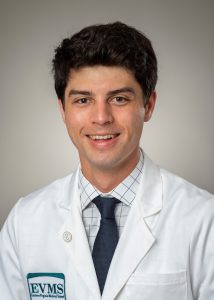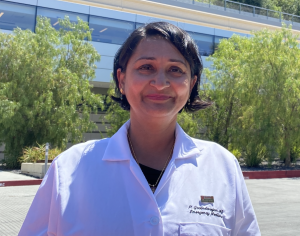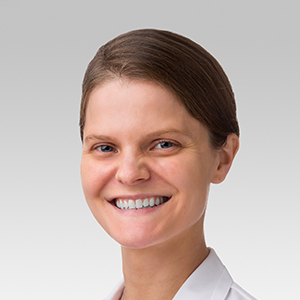This session has been cancelled, we will resume on April 10, 2023.
Each week, S-SPIRE hosts an in-person Work-In-Progress session (WIP) for faculty members and trainees to present their research and receive feedback on projects in every phase of development—from drafting specific aims pages, to parsing grant review committee comments, to abstracts/papers/methods in preparation.
Please refer inquiries to Ana Mezynski at mezynski@stanford.edu

Presented by: Nolan Martin, Medical Student
Talk Title: “Universal EHR-based Child Injury Screening for Physical Abuse Detection”.
Bio: Nolan Martin is an MS3 at EVMS and a native of Menlo Park, CA. He earned a B.S. in Computer Science from Tufts and previously held roles as a software engineer (Epocrates/Athenahealth), a cooking instructor, and a pilot. He enjoys multidisciplinary research and technology-driven quality improvement projects.
Each week, S-SPIRE hosts a Work-In-Progress session (WIP) for faculty members and trainees to present their research and receive feedback on projects in every phase of development—from drafting specific aims pages, to parsing grant review committee comments, to abstracts/papers/methods in preparation.
Please refer inquiries to Ana Mezynski at mezynski@stanford.edu

Presented by: Prasanthi Govindarajan, MD, Associate Professor of Emergency Medicine, Stanford University
Talk Title: “Prehospital stroke transport policies and Effects – Lessons Learned and Future Directions”
Bio: Dr. Govindarajan is a health services researcher with expertise in emergency medical services and healthcare systems. She completed her emergency medicine residency at Boston Medical Center, a fellowship in emergency medical services, and a master’s in clinical research at the University of California, San Diego. She started as a full-time faculty in 2007 at the University of California, San Francisco, and is currently an associate professor of emergency medicine at Stanford University Medical Center. She practices emergency medicine at Stanford Health Care, an academic emergency department in Northern California, and contributes to research training for residents, fellows, and early to mid-stage faculty.
Her research aims to improve access to specialized centers for acute stroke care through early detection of stroke and appropriate triage and transport in the prehospital setting. Her early work on stroke detection by emergency medical services and the effects of county-level ambulance transport policies on stroke treatment (K08 HS17965 from the Agency for Healthcare Research and Quality) has led to a national mixed-methods study on the effectiveness of a stroke destination protocol for emergency medical service providers. This study is an ongoing collaboration with S-SPIRE. It is funded by the Agency for Health Care Research and Quality (R01 HS026207).
Through funding from industry, foundations, and philanthropy, she has made valuable scientific contributions to the prehospital community – feasibility of prehospital telemedicine, effects of training and education on large vessel occlusion by paramedics, and effects of destination protocols on stroke. She is working with the data science team at S-SPIRE and the policy analysts at the Center for Disease Control and Prevention (Division of Heart Disease and Stroke Prevention) to develop best practice guidelines and provide evidence on the effects of integrated systems of emergency care for stroke.
Each week, S-SPIRE hosts a Work-In-Progress session (WIP) for faculty members and trainees to present their research and receive feedback on projects in every phase of development—from drafting specific aims pages, to parsing grant review committee comments, to abstracts/papers/methods in preparation.
Please refer inquiries to Ana Mezynski at mezynski@stanford.edu

Presented by: Alexander Sox-Harris, PhD, Professor of Surgery, S-SPIRE Center, Stanford University
Talk Title: “Methods to Describe Disparities in Surgical Care: Review and Recommendations”
Bio: Alex Sox-Harris is a leader in several domains of health services research, including quality measurement, pragmatic rigorous evaluation, predictive modeling, and improvement science (implementation and de-implementation). As a VA Research Career Scientist and Professor in the Stanford Department of Surgery, he has published over 250 scientific papers, has over 15 years of continuous federal research funding, and has received numerous national awards for the innovation and impact of his research. In addition to his own work, Dr. Sox-Harris mentors and supports surgeons to produce publishable research and secure research funding.
Each week, S-SPIRE hosts a Work-In-Progress session (WIP) for faculty members and trainees to present their research and receive feedback on projects in every phase of development—from drafting specific aims pages, to parsing grant review committee comments, to abstracts/papers/methods in preparation.
Please refer inquiries to Ana Mezynski at mezynski@stanford.edu

Presented by: Stefanie Syer, Assistant Professor in the Department of Emergency Medicine, Stanford University
Talk Title: “Electronic Health Record Data, Interdependence, and The Road Ahead”
Bio: Dr. Stefanie Sebok-Syer is an Assistant Professor in the Department of Emergency Medicine at Stanford University. She received her PhD in Measurement, Assessment, and Evaluation from Queen’s University in Kingston, Ontario and completed a postdoctoral fellowship in qualitative research methodology and medical education research at the Centre for Education, Research and Innovation at the Schulich School of Medicine and Dentistry at Western University in London, Ontario.
Each week, S-SPIRE hosts a Work-In-Progress session (WIP) for faculty members and trainees to present their research and receive feedback on projects in every phase of development—from drafting specific aims pages, to parsing grant review committee comments, to abstracts/papers/methods in preparation.
Please refer inquiries to Ana Mezynski at mezynski@stanford.edu

Presented by: Anne Stey, MD, MSc, Department of Surgery, Northwestern University Feinberg School of Medicine.
Talk Title: “Improving Trauma Systems of Care”
Biography: Anne M. Stey, M.D., MSc received her medical degree from Mount Sinai School of Medicine of New York University. After witnessing inefficiencies and disparities in care in New York City, she studied International Health Policy at the London School of Economics and Political Science where she developed an interest in economic analysis. She returned to New York to complete general surgery residency at the Mount Sinai Medical Center. She was then selected as one of the Robert Wood Johnson Clinical Scholars at the University of California Los Angeles where she developed interests in quality measurement, and quality improvement. She worked on identifying sources of variation in cost of surgical care and the relationship between cost and quality of care. Clinically she focused on surgical critical care and trauma surgery and completed clinical fellowship at the University of California San Francisco. Her ongoing research interests are focused on issues of quality and value measurement with an underlying goal of helping the US health care system become more efficient and equitable for all Americans. Dr. Stey holds a K-award from NHLBI on the timeliness of the management of trauma related hemorrhage and trauma related coagulopathy, and is the director of the coordinating center for the Illinois Surgical Quality Improvement Collaborative (ISQIC).
Each week, S-SPIRE hosts an in-person Work-In-Progress session (WIP) for faculty members and trainees to present their research and receive feedback on projects in every phase of development—from drafting specific aims pages, to parsing grant review committee comments, to abstracts/papers/methods in preparation.
Please refer inquiries to Ana Mezynski at mezynski@stanford.edu

Presented by: Maria Emilia de Oliveira Montez Rath, PhD, Senior Researh Engineer, Medicine, Nephrology, Stanford University.
Talk Title: “Dialysis Effectiveness versus Medical Management in a national cohort of older adults – A Target Trial Emulation Study”
Bio: Dr. Montez-Rath is the director of the Biostatistics Core in the Division of Nephrology. In this role, she leads the design and analysis of kidney-related clinical studies. Her work is data-driven in that she focus efforts on methodological gaps that arise in her collaborative work. At the same time, her collaborative work is steeped in addressing important clinical questions that will directly improve patient’s lives or providers care delivery.
Each week, S-SPIRE hosts a Work-In-Progress session (WIP) for faculty members and trainees to present their research and receive feedback on projects in every phase of development—from drafting specific aims pages, to parsing grant review committee comments, to abstracts/papers/methods in preparation.
Please refer inquiries to Ana Mezynski at mezynski@stanford.edu

All prospective applicants to our General Plastics, and Vascular Surgery Residency Programs are invited to join us Monday, July 24th at 4PM Pacific/7PM Eastern for our annual Meet & Greet with Department Leadership. RSVP here.

Presented by:
Laura Graham, PhD
Health Services Research Economist
Stanford-Surgery Policy Improvement Research and Education Center
Bio
Laura is a health services researcher with a wide variety of experience in data management and analysis, including large multi-center health services and outcomes research studies, provider survey studies, and laboratory-oriented research. Her research interest includes surgical outcomes research, informatics, and implementation science to translate evidence into practice. The bulk of her research experience is centered around the use and analysis of large administrative datasets collected by the Veterans Health Administration. She has been involved in a multitude of Health Services Research & Development funded and unfunded studies using these administrative data to assess surgical outcomes.